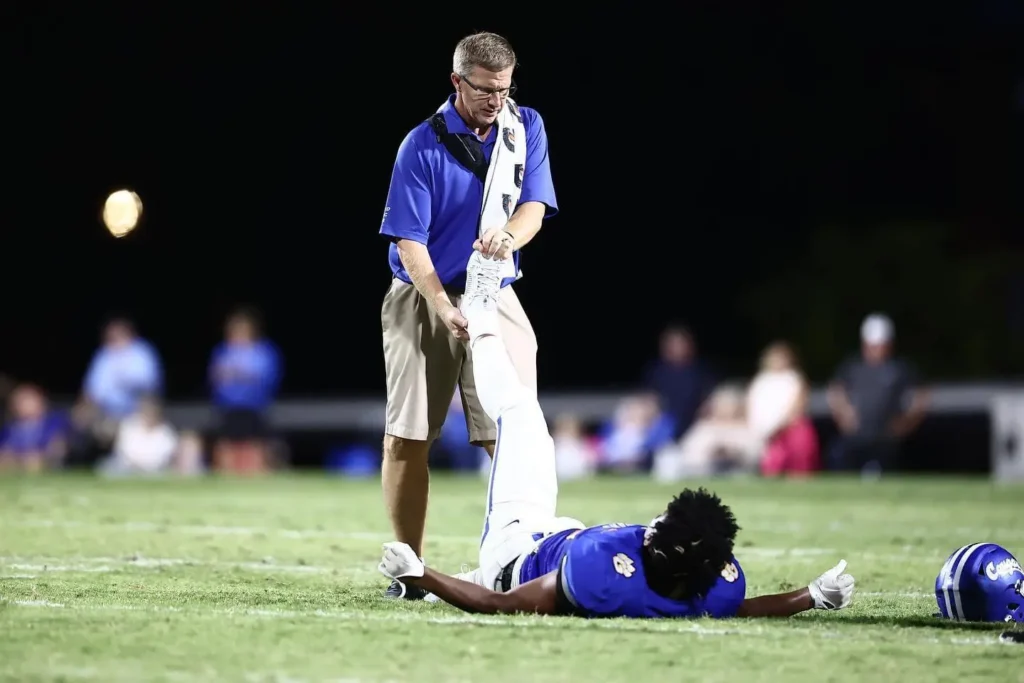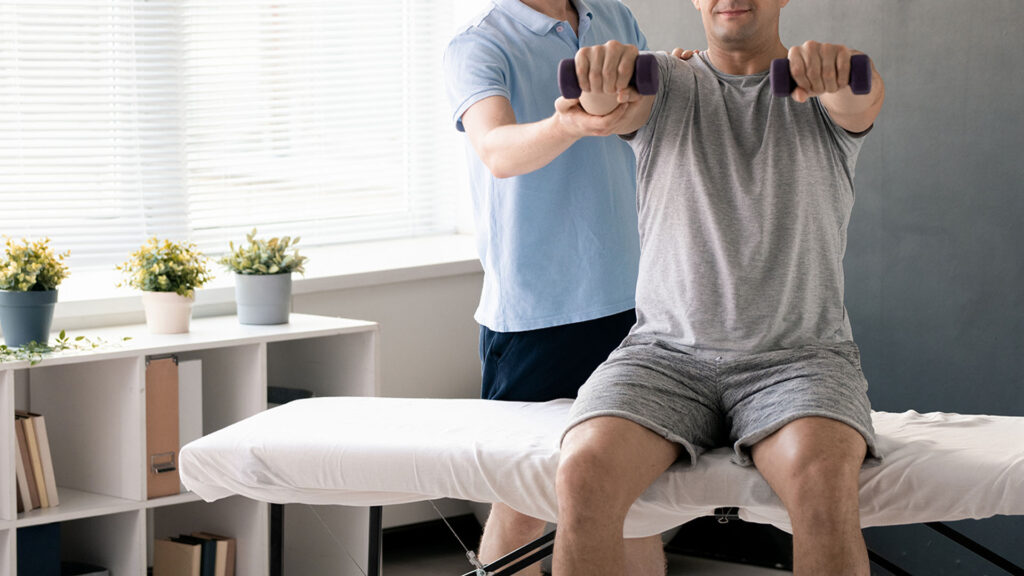Have you ever wondered do sports medicine doctors handle neck pain and how they can help you get back to feeling your best? From hours hunched over your laptop to the aftermath of a minor whiplash, neck pain can derail your day, your sleep, and even your business meetings. In this comprehensive guide, you’ll learn what sports medicine is, why these specialists are uniquely equipped to treat neck pain, and discover evidence‑based strategies to relieve and prevent discomfort—so you can focus on what matters most, whether that’s closing a deal, exploring new destinations, or simply getting through your workday pain‑free.
What Is Sports Medicine?

Table of Contents
Sports medicine is a medical specialty devoted to the prevention, diagnosis, treatment, and rehabilitation of injuries related to physical activity and movement. While it’s often associated with athletes, sports medicine physicians treat a broad spectrum of patients—from weekend warriors and travelers lugging heavy suitcases, to remote workers grappling with tech‑neck. Their training equips them to address conditions of the muscles, bones, joints, ligaments, and nerves, making them ideal providers for musculoskeletal neck issues.
Can Sports Medicine Doctors Treat Neck Pain?
Yes—sports medicine doctors are fully qualified to handle neck pain through conservative, evidence‑based therapies aimed at restoring function and preventing recurrence. They conduct thorough evaluations, including medical history, physical examination, and diagnostic imaging (X‑rays, MRIs) when needed, to pinpoint the root cause of your discomfort.
Common Causes of Neck Pain
- Poor Posture & Tech‑Neck: Leaning over screens strains neck muscles and ligaments, leading to chronic pain.
- Soft‑Tissue Injuries: Overuse or acute trauma (e.g., whiplash) can sprain ligaments and strain muscles in the cervical spine.
- Degenerative Conditions: Osteoarthritis and degenerative disc disease compress joints and nerves, causing stiffness and radiating pain.
- Nerve Compression: Herniated discs or bone spurs may impinge nerve roots, resulting in sharp or electric‑shock sensations down the arm.
The Sports Medicine Approach
- Functional Assessment: Detailed analysis of posture, gait, and movement patterns to identify biomechanical contributors.
- Diagnostic Testing: Imaging or nerve studies are ordered only when “red flags” (e.g., numbness, arm weakness) suggest serious pathology.
- Collaborative Care: Coordination with physical therapists, pain specialists, and nutritionists for holistic management.
Treatment Options Offered
- Physical Therapy: Custom exercise regimens to strengthen neck stabilizers, correct posture, and improve flexibility.
- Manual & Myofascial Therapy: Hands‑on techniques such as joint mobilizations and soft‑tissue release to reduce stiffness.
- Modalities: Use of ultrasound, electrical stimulation, and traction to promote healing and pain relief.
- Medications & Injections: NSAIDs, muscle relaxants, and targeted steroid injections for inflammation and nerve‑root pain.
- Ergonomic & Postural Education: Advice on workstation setup, travel posture, and daily habits to prevent recurrence.
When to Seek Specialized Care

While most neck pain improves with conservative measures over 4–6 weeks, consult a sports medicine doctor or specialist if you experience:
- Persistent or worsening pain beyond six weeks
- Neurological signs: arm numbness, weakness, or coordination loss
- Severe pain unresponsive to NSAIDs or rest
- Headache, fever, or other systemic symptoms
Early referral to a spine surgeon, neurologist, or pain management specialist may be warranted for surgical evaluation, advanced injection therapies, or multidisciplinary pain programs.
Prevention and Self‑Management
Adopt these strategies to reduce your neck‑pain risk and support recovery:
- Frequent Movement Breaks: Aim to stand, stretch, or walk for 5 minutes every hour.
- Ergonomic Setup:
- Screen at eye level
- Neutral spine alignment
- Supportive chair with lumbar and cervical support
- Strengthening Exercises: Incorporate chin tucks, shoulder blade squeezes, and neck rotations daily.
- Mindful Travel Posture: Use travel neck pillows, adjust headrests, and take in‑flight stretch breaks.
- Stress Management: Practice relaxation techniques—yoga, deep breathing, or massage—to reduce muscle tension.
Why Choose a Sports Medicine Doctor for Neck Pain?
- Holistic Movement Expertise: They analyze how your entire body contributes to neck health.
- Non‑Surgical Focus: Prioritize less invasive options before considering surgery.
- Lifestyle Integration: Tailor plans for remote workers, entrepreneurs juggling travel, and resellers spending hours on devices.
The answer varies—but being informed about your options can help you take control of your health and your wallet.
FAQs About do sports medicine doctors handle neck pain
Q1: Do sports medicine doctors perform surgery?
No—sports medicine physicians focus on non‑surgical care and refer you to orthopedic or spine surgeons only if conservative measures fail.
Q2: How many visits will I need?
Typically, 4–8 sessions over 6–12 weeks, depending on injury severity and response to treatment.
Q3: Does insurance cover sports medicine consultations?
Most major insurers cover medically necessary evaluations and treatments; verify benefits for PT, injections, and imaging.

Q4: How does sports medicine differ from orthopedics?
Orthopedics often includes surgical training, whereas sports medicine emphasizes rehabilitation, performance enhancement, and non‑operative care.
Conclusion
If you’re asking, do sports medicine doctors handle neck pain, the answer is a resounding yes. With their expertise in movement, biomechanics, and non‑surgical therapies, they offer comprehensive care that not only relieves your current pain but also empowers you to prevent future flare‑ups. Ready to take the first step toward lasting relief? Leave a comment below or explore our related articles to learn more about optimizing your neck health.



